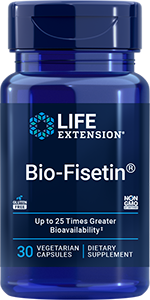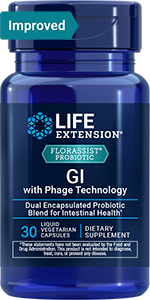
Newsletter
Newsletter
Large study links higher nutrient intake with lower risk of mortality during 9.3-year median period

They don’t call them “vita”-mins for nothing. The prefix to this word means “life” in Latin—and indeed, a large study has found that higher intake of vitamin E and A, as well other key nutrients including magnesium, was linked to a lower risk of disease-related or all-cause mortality during follow-up.
A study that utilized data from the 1999-2010 National Health and Nutrition Education Survey (NHANES) found an association between having an adequate intake of vitamin E, iron, magnesium, potassium, EPA and DHA, essential amino acids and fiber and a lower risk of dying during a median follow-up period of 9.3 years. The findings were published in the October 2021 issue of the Journal of Nutrition.1
“These study findings can be used as comprehensive information about the associations between nutrient adequacy of critical nutrients in the diet of US adults and mortality risk based on the national survey data,” authors Kyungho Ha and colleagues of the Department of Nutritional Sciences at the University of Connecticut wrote.
The study included 20,602 men and women enrolled in NHANES 1999-2010. During a median 9.3-year period, 3,539 participants died. The participants who survived were more likely to have reported a higher intake of specific nutrients.
Notably, compared to participants whose magnesium intake was among the lowest one-third, those whose intake was among the top third had a 22% lower adjusted risk of dying from any cause, a 35% lower risk of dying from cardiovascular disease and a 29% lower risk of cancer death during follow-up.
Magnesium wasn’t the only nutrient linked to a lower risk of mortality during follow-up; the top consumers of vitamin E, iron, potassium and fiber had 19%, 15%, 18% and 16% lower respective risks of premature all-cause mortality.
For essential amino acids, the risk of mortality from all causes was 15% lower and for the omega-3 fatty acids EPA plus DHA, the risk was 13% lower when participants whose intake was among the top 25% were compared to the lowest 25%.
Cardiovascular disease mortality was 25% lower and cancer-specific mortality was 24% less among those in the top third of vitamin A intake compared to the lowest group. The greatest consumers of calcium had a 28% lower risk of dying from cancer.
“These findings suggest that higher intakes of nutrients, including vitamins A and E, magnesium, iron, calcium, potassium, and dietary fiber relative to the RDA/AI, and improving macronutrient quality are associated with a reduction in risk of cardiovascular disease and cancer mortality in US adults,” the authors concluded.
Products
Apply What You've Learned: Getting Adequate Nutrition
- Most Americans have inadequate intake of many nutrients, while sodium, added sugars and saturated fat exceed recommended intake levels.1 Taking a closer look at what’s on your plate, and increasing your intake where necessary, may add years to your life.
- Eating more plants and avoiding processed foods can help improve nutrient adequacy.2 The Mediterranean diet and the Dietary Approaches to Stop Hypertension (DASH) diet are options worth considering.3
- Even the healthiest of diets might not provide optimal amounts of certain nutrients, due to nutrient-depleted soil, the loss of nutrients during food transport and storage, and other factors.4-7 Dietary supplements can fill in the gaps for many nutrients and boost intake to optimal levels.8,9
- Blood tests can evaluate the levels of many nutrients, so you can figure out where your diet might be falling short and to guide your intake strategy.
References
- Ha K et al. J Nutr. 2021 Oct 1;151(10):3214-3222.
- Kahleova H et al. Nutrients. 2017 Aug 9;9(8):848.
- Trautwein EA et al. Nutrients. 2020 Sep 1;12(9):2671.
- Izydorczyk G et al. Sci Total Environ. 2021 Feb 1;754:141983.
- Goulding K et al. Philos Trans R Soc Lond B Biol Sci. 2008 Feb 12;363(1491):667-80.
- Davis DR et al. J Am Coll Nutr. 2004 Dec;23(6):669-82.
- Barrett D. “Maximizing the Nutritional Value of Fruits & Vegetables.” University of California, Davis. https://fruitandvegetable.ucdavis.edu/files/197179.pdf
- Glenville M. Curr Opin Obstet Gynecol. 2006 Dec;18(6):642-7.
- Craig WJ. Nutr Clin Pract. 2010 Dec;25(6):613-20.
Featured Life Extension Magazine® Article
The Mindspan Diet, by Preston Estep III, PhD
“Mindspan” is a term used by Preston Estep III, PhD, to refer to “the mind’s length of life plus its breadth and height of performance.” He explained that “Lifespan measures how long we live, but how fulfilling that life is depends on how well your mind works during that time.”
Dr Estep described a “Mindspan Elite” population who retain their cognitive abilities throughout life. These individuals consume less red meat, milk and added sugar, while eating more fish and seafood, beans, phytochemicals, greens, “healthy” fats such as olive oil, and fermented, pickled and naturally preserved foods.
What's Hot
Health Concern
Study finds dietary supplements significantly contribute to nutritional adequacy
An abstract published in a supplement to the June 2019 issue of Current Developments in Nutrition reported the results of an analysis of participants in the National Health and Nutrition Examination Survey (NHANES) which found a greater likeliness of adequate intake of several nutrients among adults who reported using dietary supplements.

Cancer Adjuvant Therapy
Review integrative and novel therapies, including natural interventions and the off-label use of common drugs, which have potential value in the setting of adjuvant cancer care.
Related Life Extension Magazine® Articles

What’s Missing from Most Multivitamins
Millions of Americans take a multivitamin, including 68% of seniors. Yet many older adults have inadequate intake of essential nutrients.

The National Magnesium Crisis
The majority of Americans do not obtain enough magnesium, which predisposes them to a host of serious illnesses. Human studies show that low magnesium levels accelerate pathological aging, while higher magnesium intake reduces overall mortality.
Free eBooks
Life Extension’s eBooks are educational guides to a variety of health topics, including blood sugar management, digestion, immune health and probiotics. Find out about the latest scientific research on nutrition, vitamins and other supplements and common health challenges – all easy to access on your phone, tablet or laptop.
Life Extension Magazine® Issue Now Online
A remarkable number of healthy-longevity findings have been published over the past 18 months.




